No products in the cart.

Herbert Macaulay, often heralded as the “Father of Nigerian Nationalism,” stands as a towering figure in the annals of Nigeria’s political history. Born into an influential family with a rich legacy of education and Christian values, Macaulay’s early life was marked by an immersion in both Western and Indigenous intellectual traditions.
His evolution from a civil engineer in the British colonial administration to a formidable nationalist leader underscores a life dedicated to the relentless pursuit of justice, self-governance, and the empowerment of his fellow Nigerians.
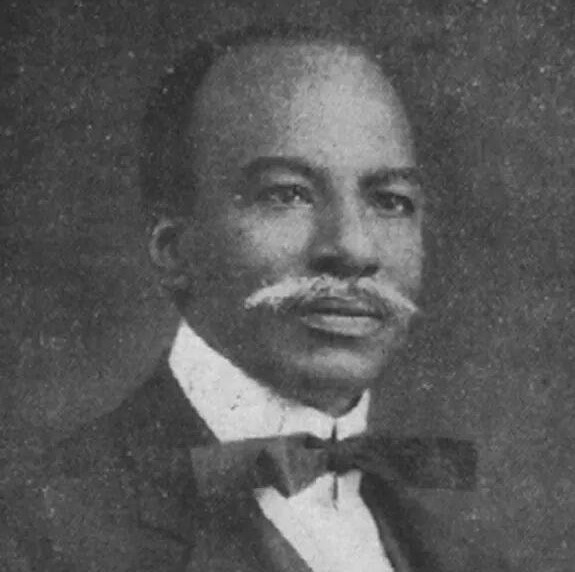
Through his founding of the Nigerian National Democratic Party (NNDP) in 1923, Nigeria’s first organised political party, Macaulay laid the groundwork for Nigeria’s eventual independence and left an indelible mark on the nation’s political landscape.
Contents
Early Life and Education
Herbert Olayinka Macaulay was born in Lagos on November 14, 1864, into a prominent and educated family. His father, Thomas Babington Macaulay (January 17, 1826 – January 17, 1878), was a notable educator and founder of the CMS Grammar School in Lagos, while his mother, Abigail Crowther, was the daughter of Bishop Samuel Ajayi Crowther, the first African bishop of the Anglican Church.[1] This lineage instilled in Macaulay a strong sense of education and Christian values from an early age.
Herbert Macaulay’s formal education began at St. Paul’s Breadfruit School in Lagos, followed by the CMS Grammar School. He later travelled to England in 1890 to further his education, where he attended Plymouth Grove Training College and the Royal Institute of British Architects. This exposure to Western education and political thought significantly influenced his later activities as a nationalist leader.
Upon his return to Nigeria in 1893, Macaulay began working as a surveyor and civil engineer for the colonial government. However, he soon grew disillusioned with the colonial administration’s policies, which favoured European interests over those of indigenous Nigerians. This dissatisfaction laid the groundwork for his future political activism.
Herbert Macaulay’s entry into politics was marked by his opposition to the water rate scheme proposed by the colonial government in Lagos in 1908. He argued that the scheme was exploitative and would disproportionately affect the African population. His activism against this policy garnered him significant support among Lagosians and established his reputation as a defender of indigenous rights.
In 1923, Herbert Macaulay founded the Nigerian National Democratic Party (NNDP), the first political party in Nigeria. The NNDP aimed to protect the interests of Lagosians and promote self-government. Under Macaulay’s leadership, the NNDP won all the seats in the Lagos Town Council elections from 1923 to 1938, solidifying his influence in Lagos politics.
Herbert Macaulay’s Contribution to the Political Development of Nigeria
Herbert Macaulay was a relentless advocate for Nigerian rights. He used his platform to speak out against the injustices perpetrated by the colonial administration. His efforts included campaigns against unfair taxation, land tenure issues, and the disenfranchisement of Nigerians. Macaulay’s activism extended beyond Lagos, as he sought to unite various ethnic groups in Nigeria in the struggle for self-determination.
Herbert Macaulay’s role in the anti-colonial movement was instrumental in laying the foundation for Nigeria’s eventual independence. He was a vocal critic of the British colonial administration and worked tirelessly to expose its injustices. His newspaper, the Lagos Daily News, became a vital tool for disseminating nationalist ideas and rallying support for the cause of self-governance.
Macaulay’s ability to forge alliances with other prominent nationalists was crucial in advancing the cause of Nigerian independence. He collaborated with young Nigerians such as Nnamdi Azikiwe, who would later become Nigeria’s first president. These alliances helped to create a united front against colonial rule and laid the groundwork for the formation of broader nationalist movements.
Herbert Macaulay’s influence on Nigeria’s political history is profound and multifaceted. His work laid the foundation for the nationalist movements that eventually led to Nigeria’s independence. His advocacy for Nigerian rights began with his outspoken criticism of the colonial administration’s exploitative policies. He championed the cause of the indigenous population, focusing on various issues that affected their daily lives.
Opposition to British Colonialism
Herbert Macaulay was particularly vocal about the unfair land tenure system imposed by the colonial government. The British administration often appropriated land from indigenous Nigerians without fair compensation, leading to widespread discontent. Macaulay argued that these policies were designed to benefit European settlers and companies at the expense of Nigerians.
His opposition to the water rate scheme in Lagos in 1908 is a notable example. The colonial government proposed a tax to fund a water supply project that disproportionately affected African residents. Macaulay’s successful campaign against this policy highlighted his ability to mobilise public opinion and resist colonial exploitation.
Macaulay also advocated for better educational opportunities and employment conditions for Nigerians. He believed that education was crucial for empowering Nigerians and enabling them to challenge colonial rule effectively.
He supported initiatives to improve the quality of education in Nigerian schools and sought to ensure that Nigerians had access to higher education and professional opportunities. This focus on education was influenced by his educational background and the belief that an educated populace was essential for achieving self-governance.
Herbert Macaulay used his platform to expose injustices within the colonial legal system. He defended Nigerians who were wrongfully accused or unfairly treated by the colonial authorities. His legal battles often highlighted the racial and discriminatory practices of the colonial judiciary.

For instance, in the case of Eleko of Eko (Oba Eshugbayi Eleko), Macaulay played a crucial role in defending the traditional ruler against unjust actions by the colonial government. His efforts, in this case, demonstrated his commitment to upholding the rights and dignity of indigenous leaders and institutions.
Macaulay’s contributions to the anti-colonial movement were instrumental in galvanising support for Nigerian independence. His activism, publications, and leadership played critical roles in uniting Nigerians against colonial rule.
In 1927, Macaulay bought the Lagos Daily News, which had been founded as West Africa and Nigeria’s first indigenous daily newspaper two years before in 1925[2]. The newspaper became a powerful tool for disseminating nationalist ideas, exposing colonial injustices, and rallying public support for the cause of self-governance.
The Lagos Daily News provided a platform for Macaulay and other nationalists to voice their criticisms of the colonial administration. It also educated Nigerians about their rights and the importance of unity in the struggle for independence. The newspaper’s influence extended beyond Lagos, reaching other parts of Nigeria and fostering a sense of national identity and solidarity.
The Evolution of Herbert Macaulay as a Nationalist
On December 5, 1893, Macaulay became the first Nigerian to qualify as a civil engineer and was admitted as a member of the British Institution of Civil Engineers, a member of the Royal Institute of British Architects, as well as a Fellow of the Royal Geographical Society.
On his return to Lagos, the government made him a surveyor of Crown lands in Lagos; however, he soon became dissatisfied with the conditions of his employment as he was put on a salary scale of £90 to £150 per annum while a British civil servant junior to him in the same department earned £250 per annum.
Thus, in 1898, after only five years in government service, Macaulay decided to go into private practice as a licensed surveyor, architect, and civil engineer. He never worked for the government again. He was only 34.
On his own, Macaulay struggled, in the early days, to find success, as the colonial authorities made sure he did not get any government jobs and only a handful of Africans were rich enough to engage and pay him for his professional services.
Although he designed very few important buildings in Lagos, like Alex Taylor’s House on Victoria Street, Henry Carr’s House on Tinubu Street, Akinola Maja’s house and the Doherty Villa in Campos Square, Macaulay was constantly in financial distress.
Between 1910 and 1927, Herbert Macaulay was a frequent contributor to the Nigerian Chronicle. In 1927, Macaulay joined forces with his friend Dr John Akinlade Caulcrick, a physician and politician, to buy the Lagos Daily News, the first daily newspaper in British West Africa, founded in 1925. Macaulay decided on the political tone of the paper. This provided his platform for his battles against the government and his African political opponents.
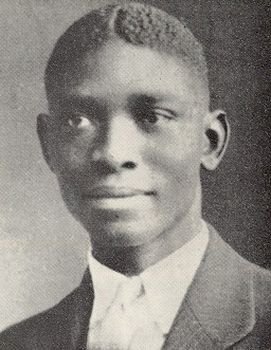
Herbert Macaulay would also go to prison again in 1928, at a time when he had become a serious opponent of the colonial government. Macaulay was responsible for the reports and editorial views of the Lagos Daily News, a medium which he used to fight his political battles. But he soon got into trouble with the British, when the paper reported a story that the car which was to bring the King of Lagos, the deposed Eleko Eshugbayi, back from exile in Oyo would be blown up by his opponents.
It was a rumour and the colonial government felt that the publication was an incitement to fuel existing tensions within the colony. Macaulay served six months in prison without any option of a fine. After his release from prison, Macaulay took a somewhat more cautious line, but his writing remained highly critical. He continued to publish his newspaper until 1938.
Herbert Macaulay’s popularity as a political leader led to the founding of the Nigerian National Democratic Party, NNDP, in 1923, the first well-organised political party in Nigeria and British West Africa.
Its motto was The safety of the people is the greatest law. Its candidates won all the elective seats in the Nigerian legislature between 1923 and 1938.
For fear that the government might take action against him, Macaulay refused to hold any party office until the 1930s. But in Lagos, there was no doubt that he was the driving force and real power behind the scenes.
Macaulay encouraged market women and elite women to take part in party activities, including speaking at its meetings. With his control of the party, Macaulay was able, to some extent, to exert some influence on some issues that came before the Legislative Council, such as the poll tax, the building of a new cemetery for Africans at Atan, Ota, present-day Ogun State and the Lagos railway construction.

When the colonial government decided to control market prices during the Second World War, Macaulay supported the opposition of the market women to the idea, arguing that the government could not seek to control what it did not supply.” Ironically, Macaulay encouraged Lagosians to contribute and support the British colonial government immensely during the war.
When the National Council of Nigeria and Cameroons (NCNC) was formed in 1944, Herbert Macaulay, now 80 years of age but physically strong and mentally alert, was elected the party’s president and Benjamin Nnamdi Azikiwe, who would go on to become the first president of independent Nigeria, became its first Secretary-General.
In 1946, the colonial government proposed a new constitution for Nigeria. But, led by Macaulay, the NCNC and other nationalists rejected the proposition. They argued that it did not go far enough in granting responsible government to Nigeria and that the locals had not been fully consulted on its provisions.
At a meeting in Glover Hall in Lagos on April 11, 1945, it was decided that an NCNC delegation, which included Azikiwe, the head of the delegation, Mrs Funmilayo Ransome-Kuti, Prince Adeleke Adedoyin, Dr A. B. Olorunnimbe, and Alhaji Inua Wada, among others, be sent to London to convey the party’s reservations to the proposed constitution.
Later Life and Death
In December 1898, the year he left the civil service, Macaulay got married to Caroline Pratt, the daughter of an African Superintendent of Police. Unfortunately, the marriage came to an end with Caroline’s sudden death in August 1899.
Macaulay vowed never to remarry but he had mistresses with whom he fathered 16 children. One of whom was “Oged” Ogedengbe Macaulay, a member of the Zikist movement, who also took after him with his own militant brand of politics.
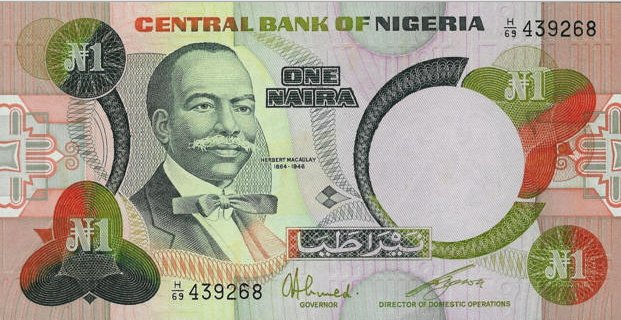
Herbert Macaulay was a great socialite and found solace from his political travails in music. He had learned the violin in the United Kingdom, even obtaining a certificate in it from the Trinity College of Music in London, and was quite good at it.
Although a Christian, the son of an Anglican Priest, Reverend T.B. Macaulay, and grandson of an Anglican Bishop, S.A. Crowther, Herbert Macaulay practised various forms of black magic and divination. He embraced the Adamu Orisa in Lagos and showed a keen interest in African traditional medicine to “protect” himself and his large family.[3]
While Herbert Macaulay was on tour in Kano, Northern Nigeria, leading the NCNC delegation, he suffered an acute attack of rheumatism and had to return to Lagos, where he was treated by Dr Olorunnimbe, his personal physician and political associate in the NCNC. He died on May 7, 1946. He was 81.
The Lord Bishop of Lagos, Archbishop Leslie Gordon Vining, officiated at Macaulay’s funeral service held for him on May 11, 1946, at the Cathedral Church of Christ, Marina, after which he was buried at the Ikoyi cemetery.
Many streets and monuments have been named after Macaulay in both Abuja and Lagos. In 1972, a ship, “Herbert Macaulay” of the Nigerian Shipping Line, was named after him[4]. The Herbert Macaulay Library in Yaba, Lagos, is also named after him. In addition, his portrait is featured on the defunct Nigerian One Naira note and coin.
Herbert Macaulay’s life was one of transformation—from an engineer who built bridges and roads to a political architect who built the foundations of Nigerian nationalism. His legacy endures as the pioneer of organised political resistance against colonialism, an unwavering champion of the people, and the father of modern Nigerian politics.
Your support can make a world of difference in helping us continue to bring Nigeria’s rich history to life! By donating to HistoryVille, you’re directly contributing to the research, production, and storytelling that uncover the incredible stories of our past. Every donation fuels our mission to educate, inspire, and preserve our heritage for generations to come.
Additionally, if you’re a business or brand, running adverts with us is a powerful way to reach an engaged audience passionate about history and culture while supporting content that matters.
Please stay connected with us through our social media handles and make sure you are subscribed to our YouTube Channel. Together, let’s keep the stories of Nigeria’s past alive.
References
- [1] Thomas, I.B. (1946): Life History of Herbert Macaulay. Tika Tore Press, Lagos. 3rd Edition.
- [2] LaRay D. (n.d). Herbert Samuel Heelas Macaulay, Founder of Nigerian Nationalism. Political Atlas of the African Diaspora (1900-1989), Article #902.
- [3] Oladapo F. (2017). Herbert Heelas Macaulay And His Relevance to The Excellence Of Lagos. Inaugural Herbert Macaulay Gold Lecture, Lagos Country Club, Ikeja, Lagos.
- [4] Tamuno, T.N. (1975). Herbert Macaulay, Nigerian Patriot. Heinemann Educational Books Ltd, London.


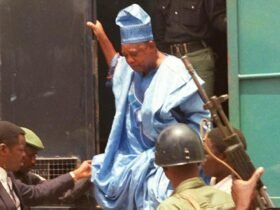
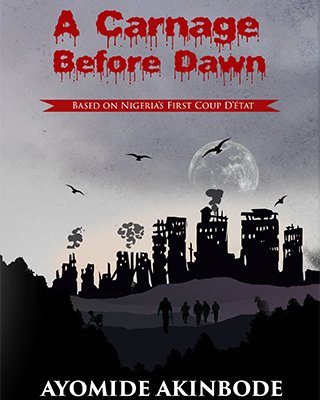
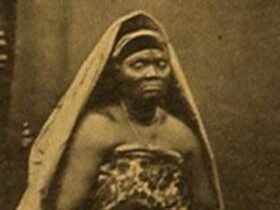



Leave a Reply
View Comments